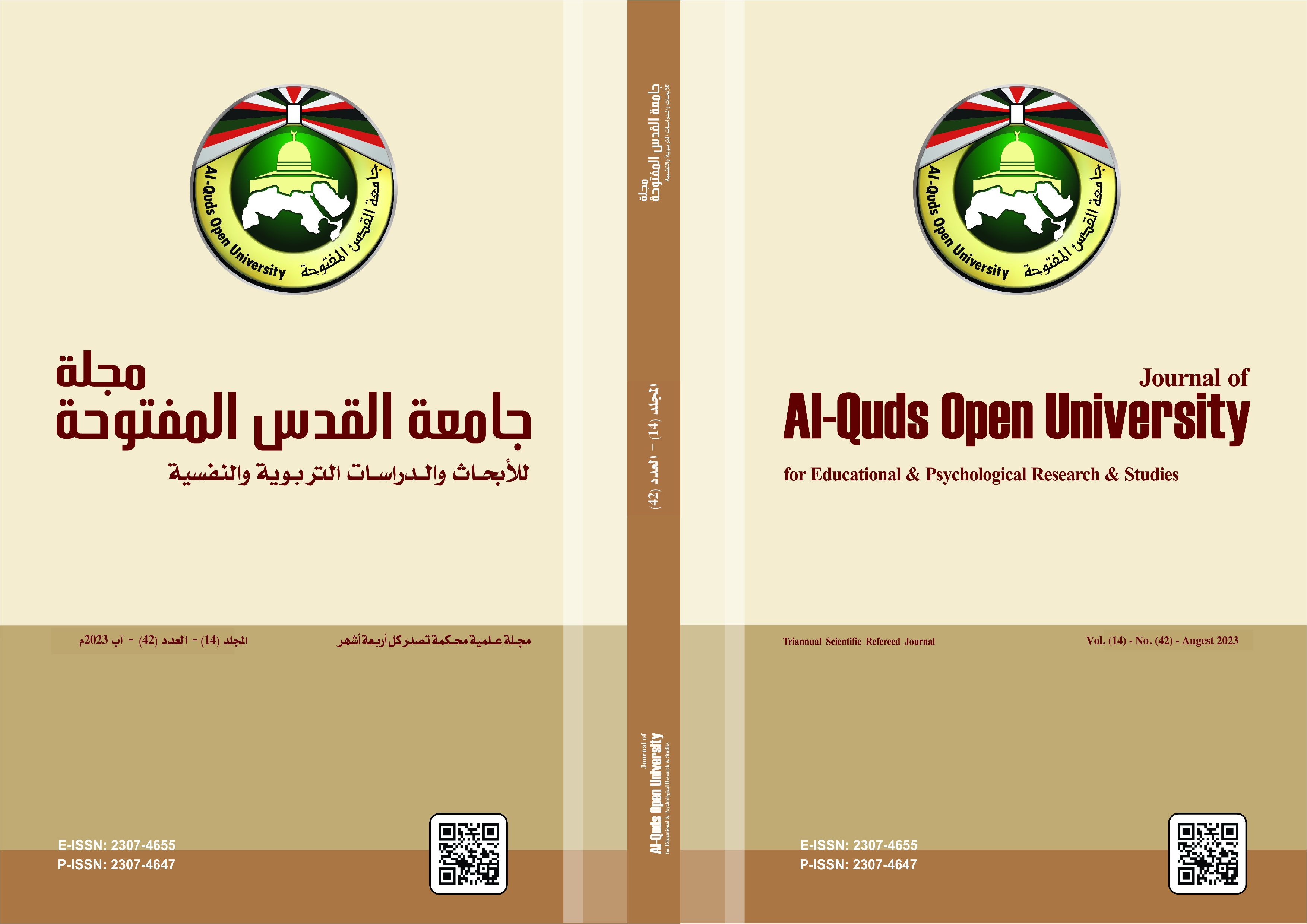A Content Analysis of the Listening Activities in the Pupil’s Book of Action Pack Three that Respond to the General Guidelines and Specific Outcomes and Integrate Language Skills
DOI:
https://doi.org/10.33977/1182-014-042-011Keywords:
Content analysis, listening activities, general guidelines and specific outcomes, Action Pack Three, integrationAbstract
This study aimed at analyzing the extent to which the listening activities included in the pupil’s book of Action Pack three respond to the general guidelines and specific outcomes and integrate language skills by utilizing the content analysis method. To answer the main research question, the analyst developed a content analysis sheet. The frequencies and percentages were used in order to present the results of the analysis. The findings revealed that the textbook under analysis includes different types of listening activities that respond to the general guidelines and the listening specific outcomes. Also, they revealed that all these types integrate language skills. The study recommended further analysis on the listening skill and the other skills, i.e., speaking, reading and writing, in light of other criteria of analysis including balance, organization, authenticity and appropriateness.
References
References
Alzboun, B.(2020).The Inclusion of the Four Language Skills in English Textbooks for the Basic Stage in Jordan Schools: A Content Analysis of Action Pack Textbooks. Jordan Journal of Applied Science-Humanities Series. Vol.25, No.1. p.1-11. Retrieved May 15, 2022, from https://search.mandumah.com/Record/1098395.
Assaly, I., & Igbaria, A. (2014). A Content Analysis of the Reading and Listening Activities in EFL Textbook of Master Class. Education Journal, 3(2), 22-38.
Brown, H. D. (2001). Teaching by principles: An interactive approach to language pedagogy. On Francisco: State University.
Brown, H. Douglas, A. (1994). Teaching by Principles. Interactive Approach to Language Pedagogy. New York: Prentice Hall Regents.
Brown, H., Lewis, A., & Harcleroad. (1964). A-V Instruction: Material and Methods. New York: McGraw Hill.
Cunningsworth, A. (1995). Choosing Your Course book. Oxford: Heinemann
Davies, P., & Pearse, E. (2002). Success in English Teaching. Shanghai Foreign Language Education Press.
Holsti, O. (1969), Content Analysis for the Social Sciences and Humanities. Reading, MA: Addison-Wesley. Retrieved February 12, 2022, from http://sites,content/pdf.
Janaydeh , Kh., & Deif, I. (2021). Listening Activities in EFL Textbooks: An Analytical Study. International Journal of Linguistics, Literature and Translation.Vol4, Issue 5. P.219-226. Retrieved February 12, 2022, from www.al-kindipublisher.com/index.php/ijllt.
Johnson, E. (2013). Action Pack 10 Tenth Grade: Activity book. London: York Press.
Keban, N., Muhtar, A., & Zen, E. L. (2011). A Content Analysis on English for Kids Grade 3, A Textbook used in Elementary Schools in Malang. Malang: State University of Malang Retrieved February 15, 2022, from https://www.academia.edu/29053380.
Krippendorff, K. (1980). Content Analysis: An Introduction to its Methodology. Newbury Park.
Manasrah, A., Al-Sobh, M., & Al-Jabali, A. (2013). A content Analysis of the Vocabulary Items in “Action Pack 12” for Twelfth Grade in the Jordanian Schools. International Journal of Humanities and Social Sciences, 3(15). 129- 136. Retrieved March 15, 2022, from http://www.ijhssnet.com/journals/Vol_3_No_15.
Matsuda, A. (2002), International Understanding through the World English. World English Journal, 21 (3). 436-440.
Ministry of Education. (2013). General guidelines and general and specific outcomes for the English language curriculum for basic and secondary stages. (2nd ed.). Amman: Central Press.
Mizbani, M., & Chalak, A. (2017). Analyzing Listening and Speaking Activities of Iranian EFL Textbook 3 Through Bloom’s Revised Taxonomy. Advances in Language and Literacy Studies, 8(3). 38-44.
Nurfajri, J. (2015). An analysis of “Listening Extra textbook” for teaching EFL listening. Master thesis, Syekh Nurjati state Islamic institute Cirebon.
Olaniyi, A., & Ajibade, Y. (2012), Adequacy and Suitability of Recommended French Language Textbooks for Developing Communicative Proficiency in Nigerian Junior Secondary School Students. The African Symposium Journal, 12 (1). 110- 123. Retrieved February, 12, 2022, from https://www.ncsu.edu/aern/TAS12.1/TAS12.1Olaniyi.pdf.
Omari, H. (2018). Analysis of the Intended Learning Outcomes and Learning Activities of Action Pack Textbooks in Jordan. Modern Applied Science; Vol. 12, No. 5; p.60-71
Richards, J. (2008). Teaching Listening and Speaking: From Theory to Practice. New York: Cambridge University Press
Richard, J., Rodgers, & Theodore, S. (2001). Approaches and Methods in Language Teaching. United States of America: Cambridge University Press.
Rost, Michael. (2011). Teaching and researching listening. Second edition. Great Britain: Longman.
Taamneh, I., M. (2018). Analyzing the Listening Activities That Match the Listening Specific Outcomes in the Jordanian Guidelines for the Pupil’s Book of Action Pack 5. International Research in Education. 6(1), 50-62. doi:10.5296/ire. v6i1.12657
Utami , Y. (2017). A Content Analysis on the English Textbook “The Bridge English Competence 2” Used by the Eighth Year of Junior High School. English Education Journal, Vol 5, No 2.p.162-172. Retrieved February, 12, 2022, from https://jurnal.uns.ac.id/englishedu/article.
Downloads
Published
How to Cite
Issue
Section
License
Copyright (c) 2023 Journal of Al-Quds Open University for Educational & Psychological Research & Studies

This work is licensed under a Creative Commons Attribution 4.0 International License.
- The editorial board confirms its commitment to the intellectual property rights
- Researchers also have to commit to the intellectual property rights.
- The research copyrights and publication are owned by the Journal once the researcher is notified about the approval of the paper. The scientific materials published or approved for publishing in the Journal should not be republished unless a written acknowledgment is obtained by the Deanship of Scientific Research.
- Research papers should not be published or republished unless a written acknowledgement is obtained from the Deanship of Scientific Research.
- The researcher has the right to accredit the research to himself, and to place his name on all the copies, editions and volumes published.
- The author has the right to request the accreditation of the published papers to himself.







2.png)






_2.png)

